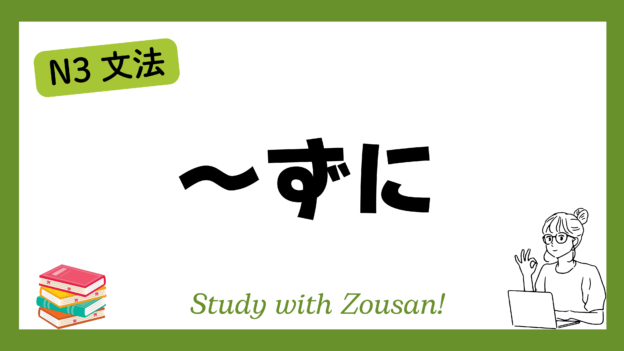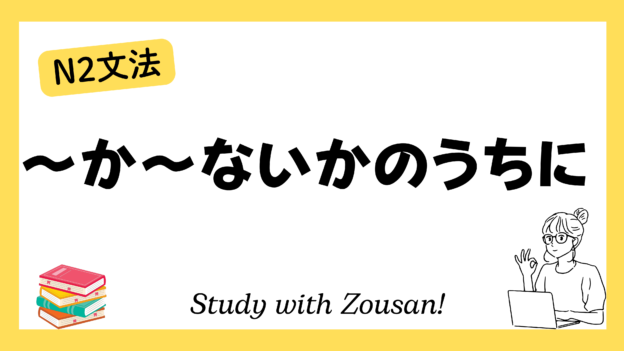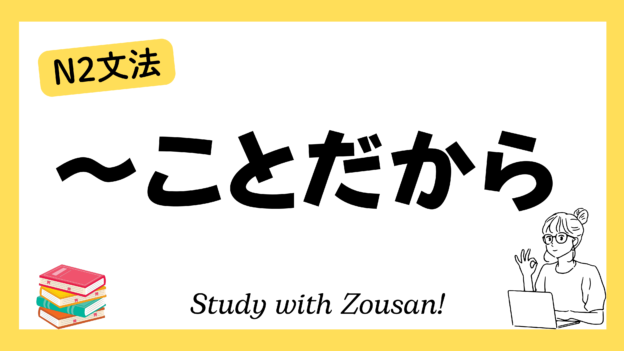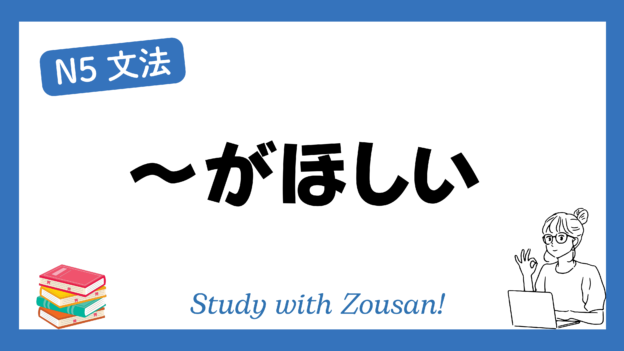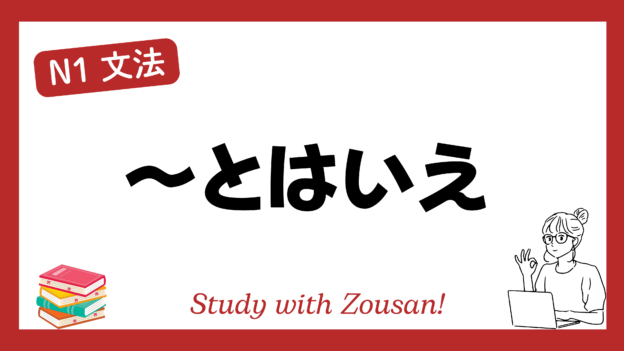N3文法:~ずに
Meaning: “Without doing…” / “Not doing…”
This structure is used to express that one action is performed without doing another specific action. It often indicates that something is done without needing a particular action.
※Note: “ずに” is usually used with verbs in their negative form (without “ない”) to emphasize that the action is not performed.
Structure:
|
Verb ※する ➡ せず(に) |
Example:
-
-
-
🌟 朝ごはんを食べずに学校に行きました。
(あさごはん を たべずに がっこう に いきました)
I went to school without eating breakfast. -
🌟 彼は何も言わずに立ち去った。
(かれ は なにも いわずに たちさった)
He left without saying anything. -
🌟 宿題をせずに寝てしまった。
(しゅくだい を せずに ねてしまった)
I went to bed without doing my homework. -
🌟 電話をかけずに彼女に会った。
(でんわ を かけずに かのじょ に あった)
I met her without calling. -
🌟 勉強せずに試験を受けました。
(べんきょう せずに しけん を うけました)
I took the exam without studying. -
🌟 靴を履かずに外に出た。
(くつ を はかずに そと に でた)
I went outside without putting on my shoes. -
🌟 仕事を休まずに働いています。
(しごと を やすまずに はたらいています)
I am working without taking a break. -
🌟 何も食べずに午後まで待った。
(なにも たべずに ごご まで まった)
I waited until the afternoon without eating anything. -
🌟 彼は説明を聞かずに理解したようです。
(かれ は せつめい を きかずに りかい した よう です)
It seems he understood without listening to the explanation. -
🌟 本を読まずに映画を見ました。
(ほん を よまずに えいが を みました)
I watched the movie without reading the book.
-
-



